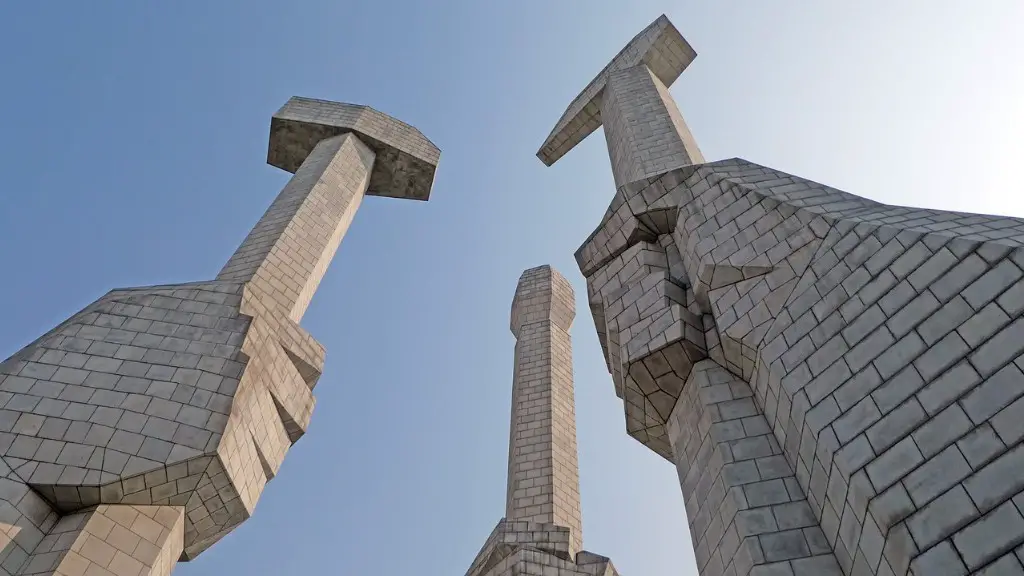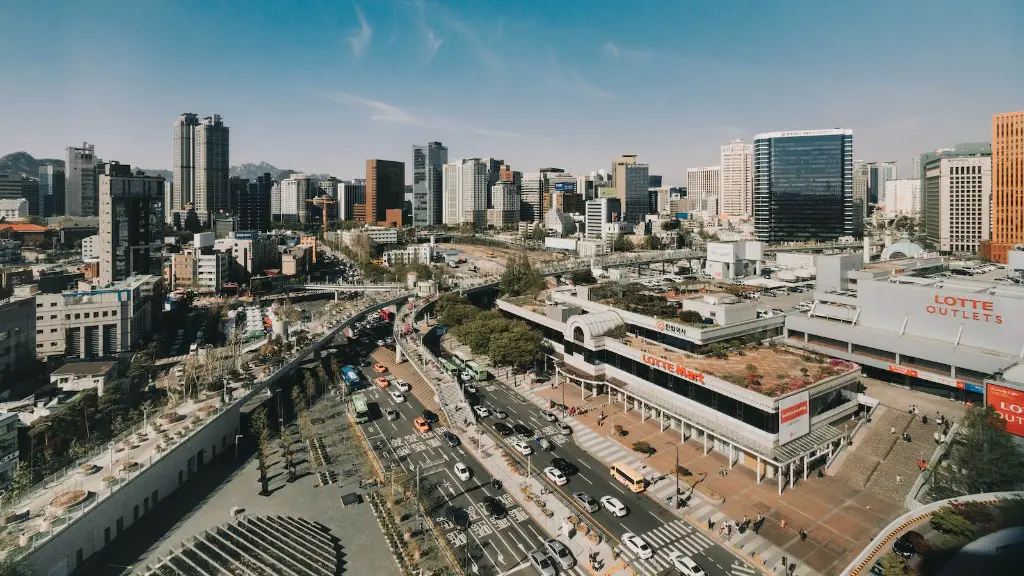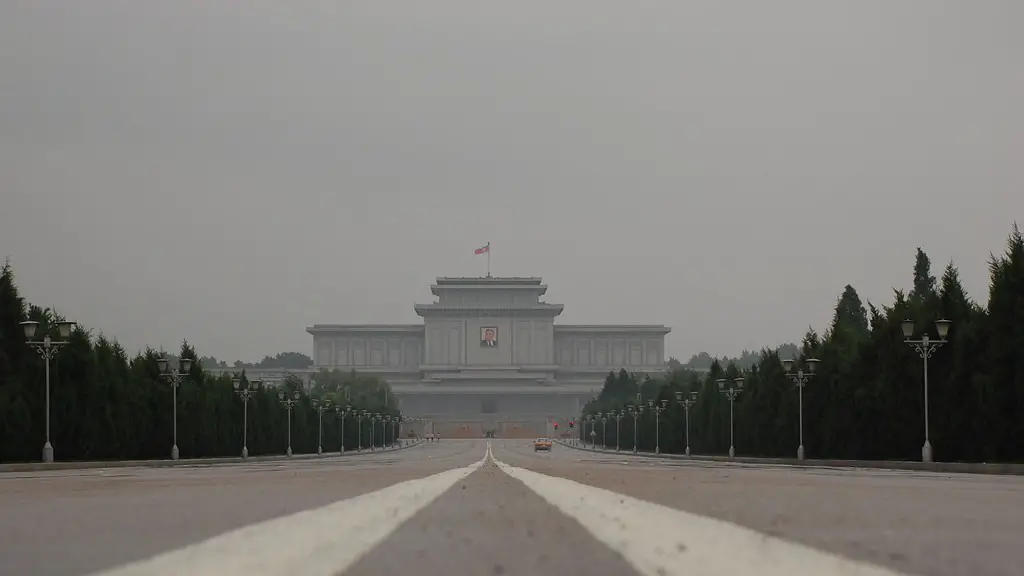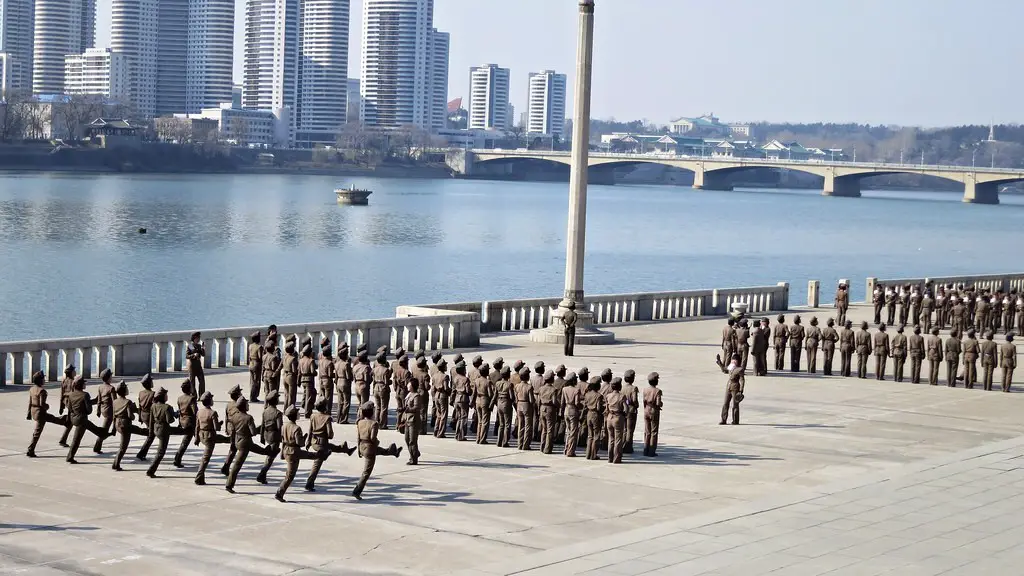Since his ascension to power in 2011, North Korea’s Supreme Leader Kim Jong-un has been an enigmatic figure whose governing style is nothing less than a closed book. Although his identity, motives, and strategy are primarily a mystery, his character and policies are the engine behind the wheel of the nation’s affairs – with regard to both domestic and foreign policy.
Kim Jong-un is the supreme leader of the Democratic People’s Republic of Korea, commonly known as North Korea. He is the third-generation leader in the Kim family dynasty that has ruled the hermetic nation since its formation in 1948. His father, Kim Jong-il, had passed away in 2011 due to natural causes, making Kim Jong-un the supreme leader of the people. He is thought to be 34 years old and had studied in Switzerland in his formative years.
Under Kim Jong-un’s leadership, North Korea has seen widespread economic growth, particularly in the agricultural and industrial sectors. In addition, the country has made significant strides in developing its nuclear program, with Kim himself playing a central role in the nation’s nuclear ambitions. The nation remains isolated from much of the world, however, due to its policies of self-isolation and its unwillingness to renounce the use of nuclear weapons.
Kim Jong-un’s foreign policy has focused on strengthening ties with China and Russia. In recent years, his government has engaged in talks with the US and other Western countries in an effort to find solutions to the nuclear crisis in the region. He has also attempted to improve North Korea’s relations with South Korea, though progress has been slow. In addition, Kim has attempted to engage in diplomacy with Japan and other regional nations, though such efforts have largely been unsuccessful.
Kim Jong-un’s domestic policies have been more controversial. In particular, he has had to confront the nation’s human rights issues, including its widely-criticized treatment of political prisoners. In addition, he has been criticized for his application of North Korea’s “songun” policy, which emphasizes the centrality of the military in the nation’s economic and political affairs. Despite this, however, Kim has enjoyed a degree of popularity amongst the North Korean populace, with many hailing his efforts to bring about economic development and stability.
Internationally, Kim Jong-un is often seen as a dangerous and unpredictable leader. Many fear his aggressive rhetoric and human rights abuses, and view his nuclear ambitions as a source of instability in the region. Despite these concerns, however, many believe that the sense of stability and economic growth under Kim’s leadership has been beneficial for the people of North Korea.
Relations Between North and South Korea
Relations between North and South Korea have been tense and frequently strained since the two countries were formally divided in 1945 at the end of World War II. After decades of quiet hostility, the two nations opened formal dialogue in the early 2000s, leading to the historic North-South Joint Statement in June 2000. In the statement, Kim Jong-un and South Korean President Kim Dae-jung declared that they would work towards a peaceful reunification of the two countries.
Since then, a number of meetings have been held between the two sides, and in 2018 Kim Jong-un and South Korean President Moon Jae-in signed the Panmunjom Declaration, a bilateral agreement aimed at establishing peace and harmony on the Korean Peninsula. Despite this, however, there has been little progress on substantive issues concerning inter-Korean relations, and many analysts are pessimistic about the prospects for true reconciliation.
Kim Jong-un has often made provocative statements about South Korea and its neighbors. In recent years, he has threatened to use nuclear weapons against South Korea, prompting strong international condemnation. Kim’s rhetoric has led to greater instability on the Korean Peninsula and has raised alarm bells amongst South Korea’s allies (including the United States).
In spite of the tensions between North and South Korea, many experts remain hopeful that the two sides will eventually be able to come to some form of agreement. If they manage to do so, it could herald the end of the decades-long conflict, and provide a significant boon to the security and stability of the entire region.
US-North Korea Relations
As the sole superpower in the world today, the United States plays a vital role in global affairs – and its relationship with North Korea has been no exception. Throughout the Cold War, Washington often threatened the use of force against North Korea, and tensions between the two nations have been a source of global instability for decades.
Since Kim Jong-un took power in 2011, relations between Washington and Pyongyang have become increasingly fraught. In 2017, the two nations engaged in a heated exchange of words and threats, which some analysts saw as a prelude to a direct military conflict. This led the United Nations Security Council to pass a series of resolutions condemning Pyongyang’s nuclear and ballistic missile tests.
In 2018, however, Kim Jong-un and US President Donald Trump met in Singapore in what was hailed as a historic event. After months of negotiations, the two leaders announced a joint statement in which they promised to work together towards denuclearization of the Korean Peninsula. Since then, relations between the two countries have improved, though tensions remain. Many analysts remain concerned about Kim’s ambitions and the potential for conflict should negotiations between the two sides resume.
North Korea and the International Community
North Korea’s foreign relations have been shaped in large part by the country’s policies of isolation, aggression, and nuclear proliferation. As a result, Pyongyang has long been seen as a pariah by many in the international community. This has led to severe sanctions being imposed by the United Nations and the United States, as well as the threat of military intervention should North Korea choose to pursue its nuclear ambitions.
However, in recent years there have been signs that North Korea is willing to begin a process of normalizing relations with the West. Kim Jong-un has met with a number of leaders and dignitaries, including US President Donald Trump, Chinese President Xi Jinping, and South Korean President Moon Jae-in. In addition, Kim has recently taken steps to open up the country to foreign investment and has implemented a series of economic reforms, measures which have been praised by some in the international community.
Despite these cautious steps towards engagement, however, mistrust of the North Korean regime remains high. The international community continues to express serious concern about Pyongyang’s human rights record and its nuclear weapons program, and has urged Kim Jong-un to take concrete steps towards denuclearization and normalization.
The Leadership of Kim Jong-un
Since taking power in 2011, Kim Jong-un has sought to position himself as a strong leader, capable of leading North Korea into a new era of prosperity and progress. He has consolidated his power base through a series of purges and executions, while also seeking to implement economic reforms and invest in North Korea’s infrastructure. His ambition to develop the country’s nuclear capabilities has also put him at odds with much of the international community.
Despite these controversial measures, Kim remains popular among the North Korean populace. His leadership style is a far cry from that of his father and grandfather, who both adopted a more secretive and reclusive approach to governance. Kim himself has taken steps towards greater engagement with the outside world and has displayed a willingness to negotiate on issues such as denuclearization.
Though his true intentions remain a mystery, Kim Jong-un is undoubtedly one of the most consequential leaders in contemporary global affairs. His leadership will have a lasting impact on North Korea and the region, and his personal style of rule – combative, yet conciliatory – will likely continue to be a major factor in the nation’s future.
The Impact of North Korean Policies
The policies of the North Korean government led by Kim Jong-un have had a significant impact both at home and abroad. In North Korea, the nation’s human rights record has been a source of constant international criticism. In particular, the government’s use of prisons, labour camps, and other forms of repressive measure has been widely condemned, while its reluctance to engage with the international community continues to impede progress.
North Korea’s nuclear ambitions have also had a major impact on the region, creating tension and instability. Pyongyang’s nuclear weapons program has been a source of great concern for the United States and its allies, who have long sought to prevent the spread of nuclear weapons in the region. In addition, Kim Jong-un’s unpredictability and aggressive rhetoric has been a source of grave concern for international powers.
At the same time, however, Kim Jong-un has sought to open up the country and improve living conditions for its citizens. His government has taken steps towards economic reform, and efforts have been made to develop links with other countries, particularly China and Russia. In addition, Kim has sought to engage in dialogue with the United States, though progress has been slow.
Conclusion
Kim Jong-un is an enigmatic and sometimes unpredictable leader whose decisions have had a profound impact on the lives of North Koreans and the region at large. Since taking power, he has sought to open the country to foreign investment and expand its contact with the international community – while at the same time preserving the nation’s hardline stance on nuclear proliferation. Only time will tell how his legacy will be spoken of in the years to come.





